The superhero genre has dominated Hollywood blockbusters for the better part of two decades, if not longer. However, over the past few years, the genre’s hold on the popular consciousness has slipped just a little bit. An interesting recurring trend in this year’s wave of superhero blockbusters is the sense that many of these stories are fundamentally about that slip. Across movies and shows, across different companies and universes, the superhero genre is facing an existential crisis.
Of course, the death of the superhero genre is greatly exaggerated. Spider-Man: Across the Spider-Verse has radically over-performed relative to Spider-Man: Into the Spider-Verse. While its box office figures are down compared to the previous entry in the franchise, Guardians of the Galaxy Vol. 3 will likely end up comfortably in the 10 highest-grossing movies of the year. These movies are still drawing sizable audiences and dominating the cultural conversation.
However, there are other indicators that the genre might be in trouble. Despite showcasing Kang (Jonathan Majors) — the headline villain of the company’s upcoming “Multiverse Saga” — Ant-Man and the Wasp: Quantumania earned less than either of its two predecessors at the global box office, less than half a billion dollars, and so fell short of the $600 million box office that it would need to turn a profit. However, Quantumania is just one example of a larger trend.
Shazam! Fury of the Gods was one of the biggest box office flops in the history of the superhero genre. Despite a fairly advantageous place on the release calendar and copious amounts of franchise nostalgia, The Flash folded on its opening weekend. As difficult as it is to get concrete metrics about streaming, there is some indication that Marvel Studios’ streaming shows have become a source of diminishing returns, with Ms. Marvel failing to attract a significant audience.
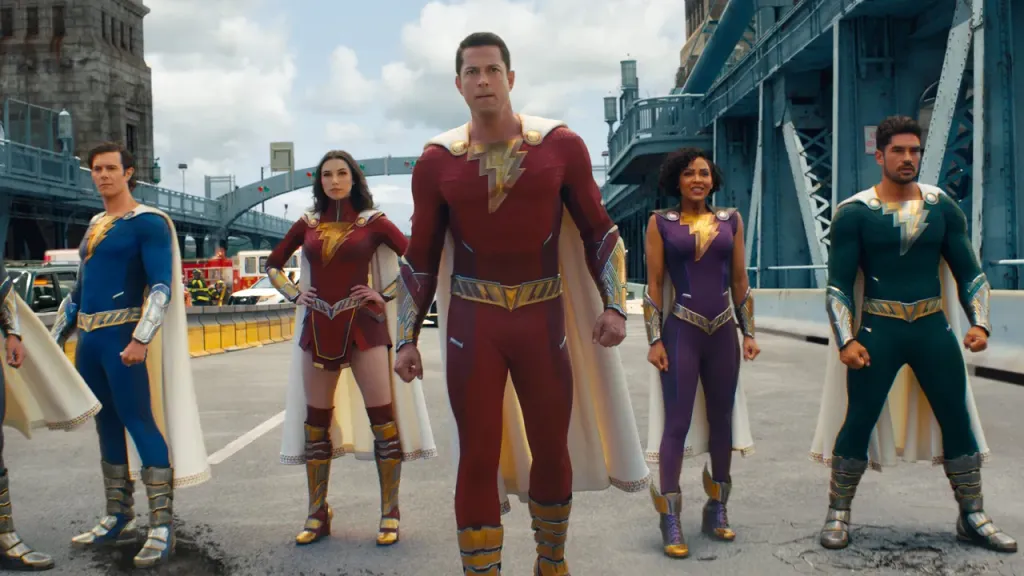
This may be the culmination of a larger trend that was disguised by the pandemic. Sony Pictures’ Spider-Man: No Way Home was the biggest movie of 2021, but it stands out in contrast to the performance of the Marvel Studios solo films released in that period. Those three years were unprecedented, so it is hard to come up with like-for-like comparisons. However, it is instructive to note that many superhero films were outperformed by contemporaneous blockbusters.
Black Widow was outgrossed by Godzilla vs. Kong and F9: The Fast Saga. Those two movies also outperformed superhero movies with more advantageous release dates later in the year, like The Suicide Squad, Shang-Chi and the Legend of the Ten Rings, and Eternals. Even in terms of comparing blockbusters with comparable release dates, No Time to Die managed to outgross those three movies and Venom: Let There Be Carnage.
In hindsight, this might be understood as part of a larger pattern. The two biggest movies of 2022, Top Gun: Maverick and Avatar: The Way of Water, had nothing to do with superheroes. This was a dramatic change of pace from the genre’s blockbuster dominance during the 2010s, when The Avengers, Iron Man 3, Guardians of the Galaxy, Captain America: Civil War, Black Panther, Avengers: Infinity War, and Avengers: Endgame topped the annual global or domestic box office charts.
In the wake of Endgame, the superhero genre was the dominant cultural force. This explains why so many of the movies that followed — from Doctor Strange in the Multiverse of Madness to Eternals to Thor: Love and Thunder — felt like a midlife crisis for the genre. This brand had conquered the world, accomplished everything that a mega-franchise could ever hope to accomplish, and so found itself grappling with ideas around happiness and purpose.
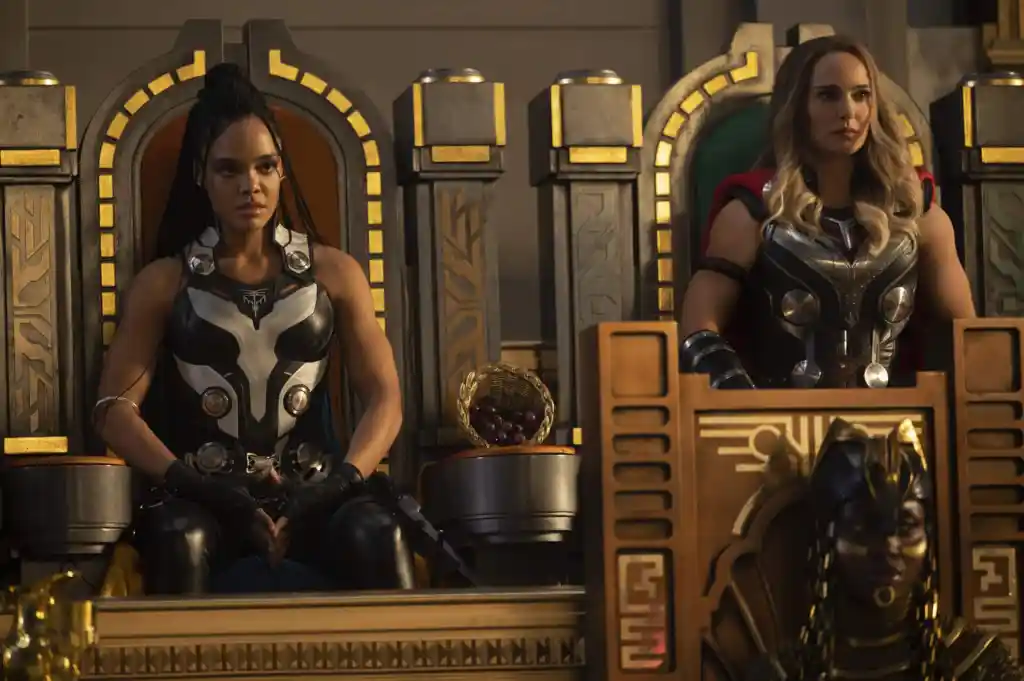
However, there has recently been a sharp shift in the thematic logic underpinning these movies and television shows, reflecting the existential challenges facing the genre. One of the big recurring themes of recent superhero blockbusters has been the importance of the superhero as a concept. Many of these recent high-profile releases are best understood as arguments for the validity of their own continued success. They are superhero movies about how the world needs superheroes.
This is perhaps most obvious in the way that these movies return time and again to the idea of the multiverse, which is often just populated with familiar intellectual property in a way that allows studios to tickle fandom’s nostalgia receptors while asserting ownership of their brands. However, there is often a recurring subtext to these stories that plays on the “Pottersville” nightmare of It’s a Wonderful Life, asking the audience to imagine a world without these costumed vigilantes.
This is most obvious at the end of Across the Spider-Verse, when Miles Morales (Shameik Moore) is thrown into Earth-42, a world without a Spider-Man, because the spider that should have bitten somebody was accidentally sent to his universe instead. It is a dystopian world, in which Miles discovers that his father (Brian Tyree Henry) is dead and that his alternate self has become the villain known as “the Prowler.”
In The Flash, when Barry Allen (Ezra Miller) alters the timeline to save his mother (Maribel Verdú), he accidentally creates an alternate universe without any “metahumans.” Superman (Henry Cavill) never came to Earth. Aquaman (Jason Momoa) doesn’t exist. Wonder Woman (Gal Gadot) seemingly never left Paradise Island. Even Batman (Michael Keaton) has retired, seemingly not part of one of these indefinitely running mega-franchises.
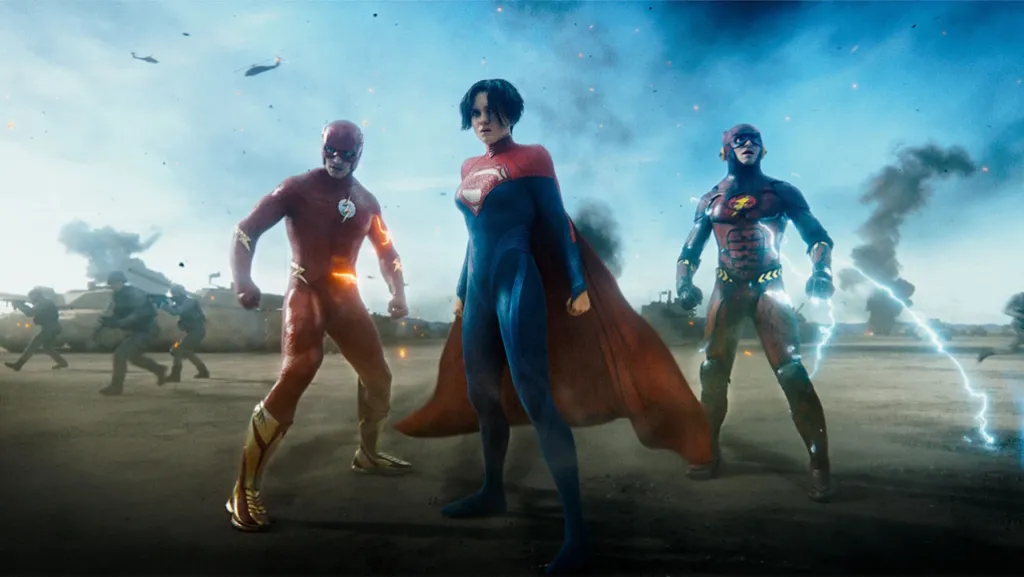
In this alternate universe, General Zod (Michael Shannon) arrives on Earth unopposed. He presumably goes on to destroy the entire planet’s population. Worse than that, though, the desperate attempts by that universe’s Barry (also Miller) to defeat Zod without Superman wind up breaking time itself, creating and destroying multiple realities. The Flash contends that Superman is an existential necessity, a building block upon which all of reality rests.
This seems to be the simmering subtext of Marvel Studios’ looming “Multiverse Saga.” Quantumania introduces a multiversal despot known as Kang the Conqueror (Jonathan Majors). His motivations are fairly straightforward and are not specifically tied to the concept of superheroes as a class unto themselves. Kang wants dominion over everything, and Scott Lang (Paul Rudd) has to stop the fiend from escaping the pocket universe in which he has been trapped.
However, the post-credits scene in Quantumania establishes the Council of Kangs, a collection of identical characters from across the multiverse. Gathering to discuss the death and defeat of Kang, they focus on superheroes as a concept. “They’re beginning to touch the Multiverse,” explains Immortus (also Majors). “And if we let them, they will take everything we’ve built.” As such, it seems like the villains of this next multi-movie epic are going to wage war on the idea of superheroes.
This isn’t necessarily a bold thematic departure for Marvel Studios. Thanos (Josh Brolin), the big villain of the “Infinity Saga,” was motivated by a belief that the universe was too heavily populated. In the narrative context of the film, Thanos erased half of all life. However, in a shared universe increasingly detached from the lives of ordinary people, Thanos erased half of the superheroes. Thanos could be seen as a personification of the criticism of the over-abundance of superhero films.
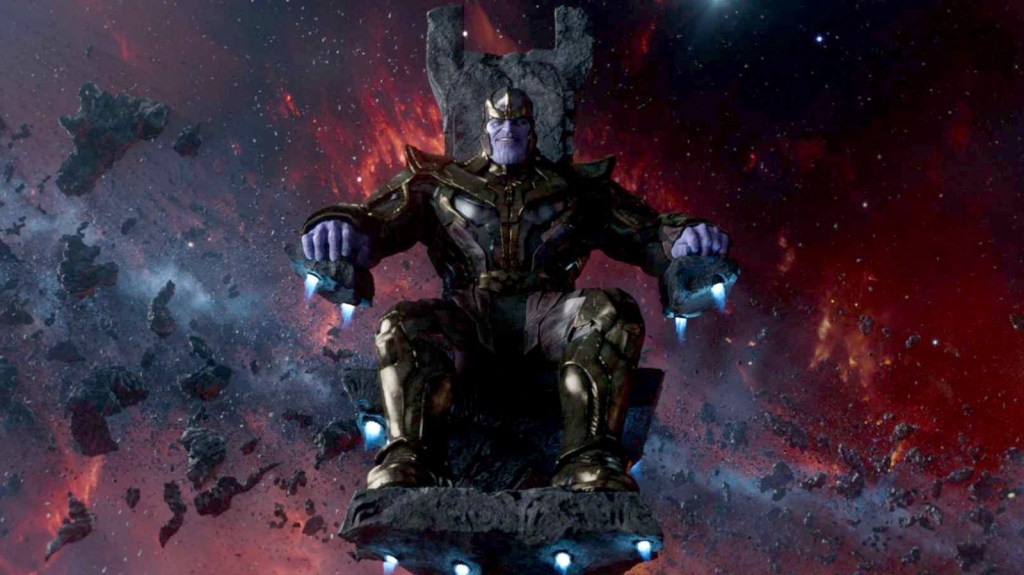
Critic David Sims has advanced this argument, contending that Thanos was a villain who had “entered this cinematic universe and declared it crowded,” whose monstrous scheme consisted of “trying to fix” the complaint that the Marvel Cinematic Universe had “too many characters.” In that sense, the Council of Kangs is an escalation of this idea. Rather than trying to curb the growth of the genre, they seem positioned to erase it entirely. These are the villains that our heroes must face.
However, the theme extends beyond the multiverse. So much of the recently launched Secret Invasion miniseries is built around using Nick Fury (Samuel L. Jackson) as an avatar of the shared universe and the superhero genre. Characters complain that Fury has lost touch with the real world, that he is no longer as good as he once was, and that he just hasn’t been the same since Endgame, all common criticisms of the superhero genre and Marvel Studios in recent years.
Characters like Sonya Falsworth (Olivia Colman) and Maria Hill (Cobie Smulders) keep telling Fury to quit while he’s ahead. After all, he is the center of the highest-grossing franchise in blockbuster history. However, despite recent missteps and errors in judgment, Fury just can’t quit. The world needs Fury, even if the established order doesn’t realize it. It turns out that Fury is the only man capable of doing what needs to be done — the only person capable of saving the world.
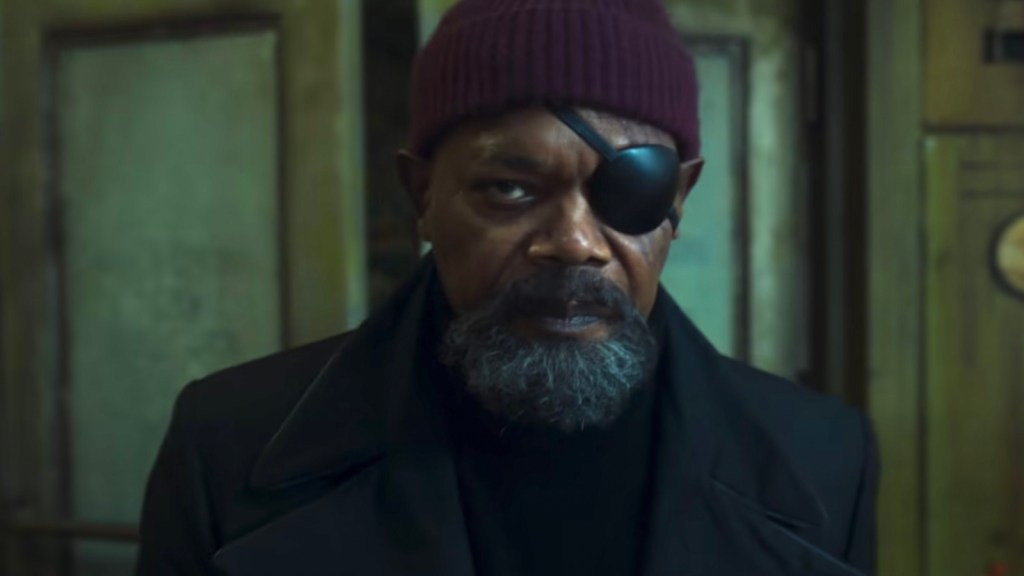
Taken together, this recent wave of superhero media presents a snapshot of a genre in existential crisis. The superhero genre sees threats to its continued existence and profitability, as well as the horror of worlds within which it no longer serves as the sole ordering principle. It’s no coincidence that this messaging is arriving just as Marvel Studios begins to throttle back release dates. These projects are no longer just superhero stories; they are ideological statements about the state of the genre.
Across the Spider-Verse is handily the best of this recent wave of projects, because it is the only film that makes a compelling argument for the superhero as more than a piece of intellectual property, making a case for the value of the concept beyond the figures in an annual shareholder’s report. After all, if these movies and shows are going to make an argument for the continued dominance of the genre, they need to find some worth beyond recognizable brand iconography.
So many recent superhero projects are presented as arguments for the superhero as a necessity that is under existential threat. There is perhaps something solipsistic in this, the sense that these films and shows are ultimately about asserting the validity of their own continued existence. However, it’s a shame that so few of them can come up with a meaningful argument in defense of the concept.

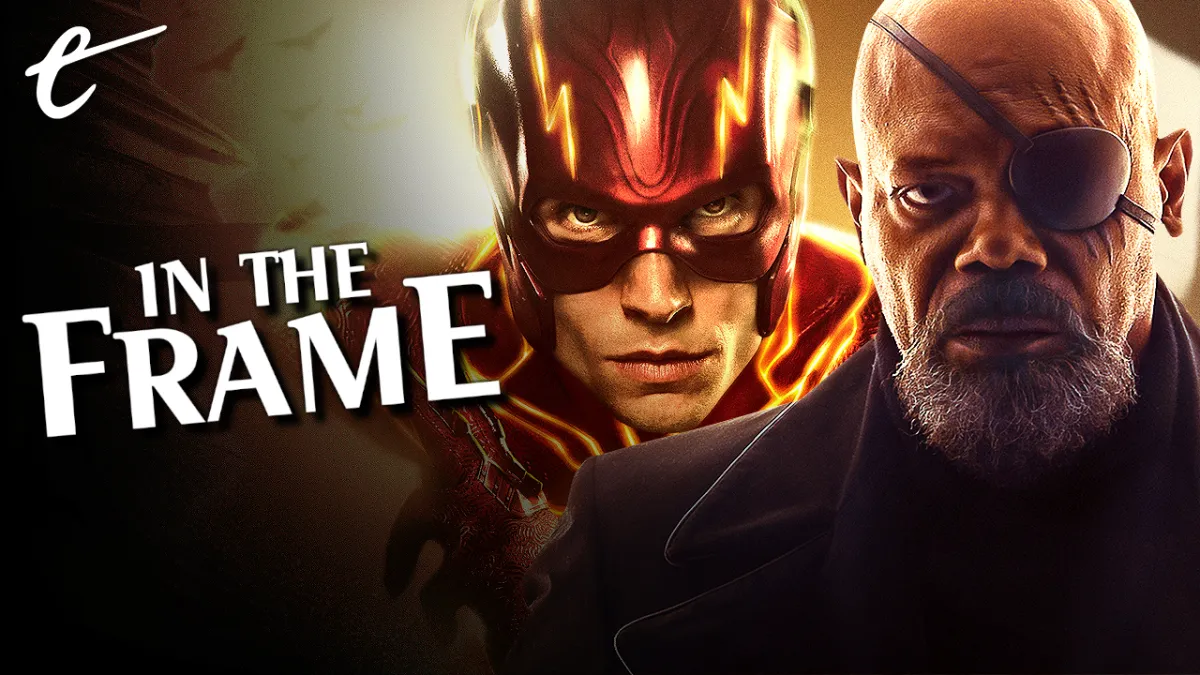




Published: Jun 23, 2023 11:00 am